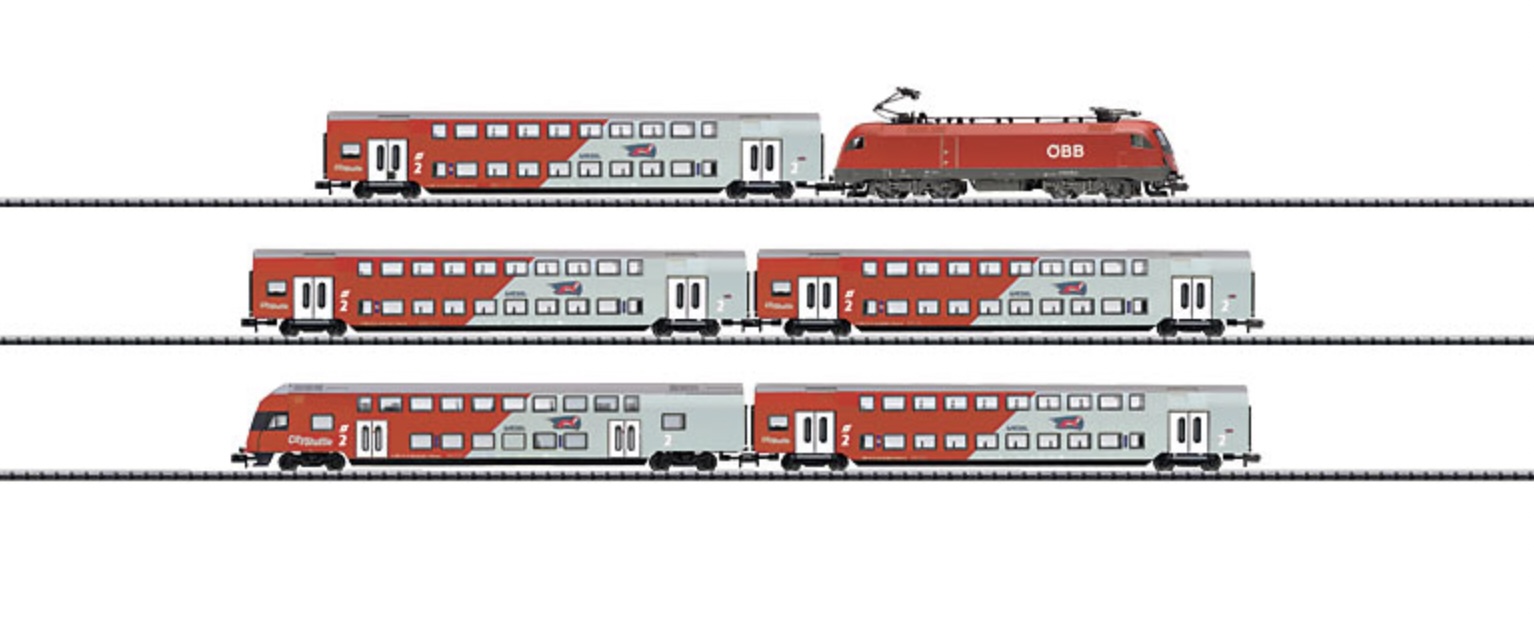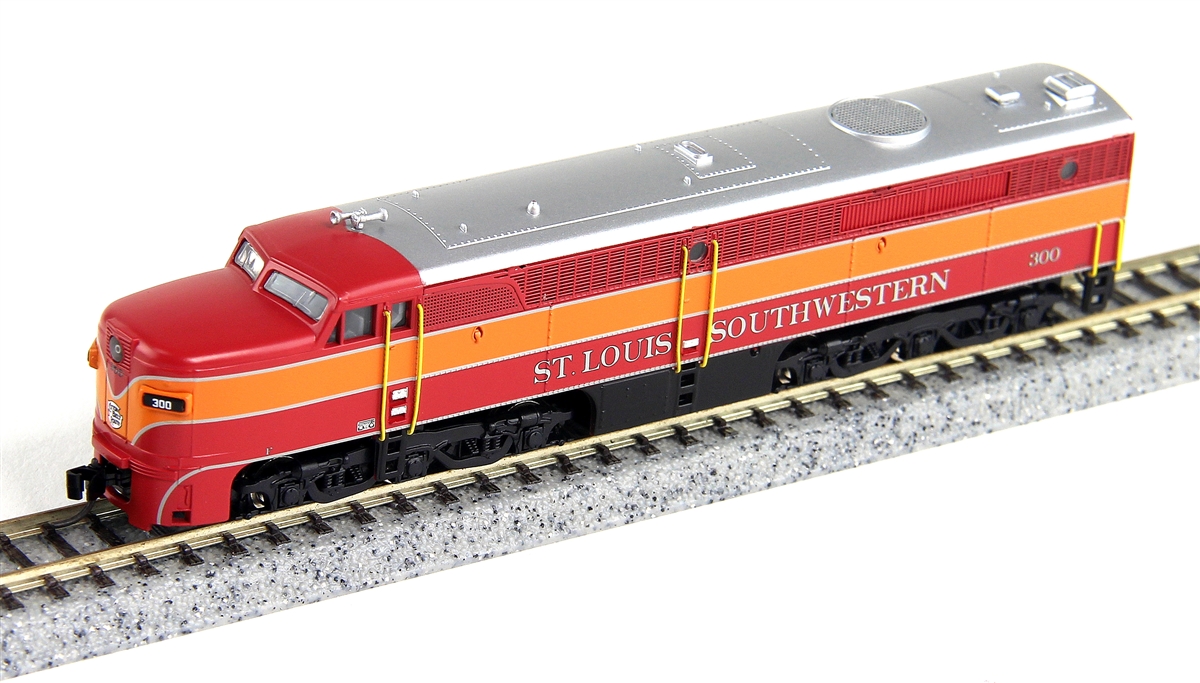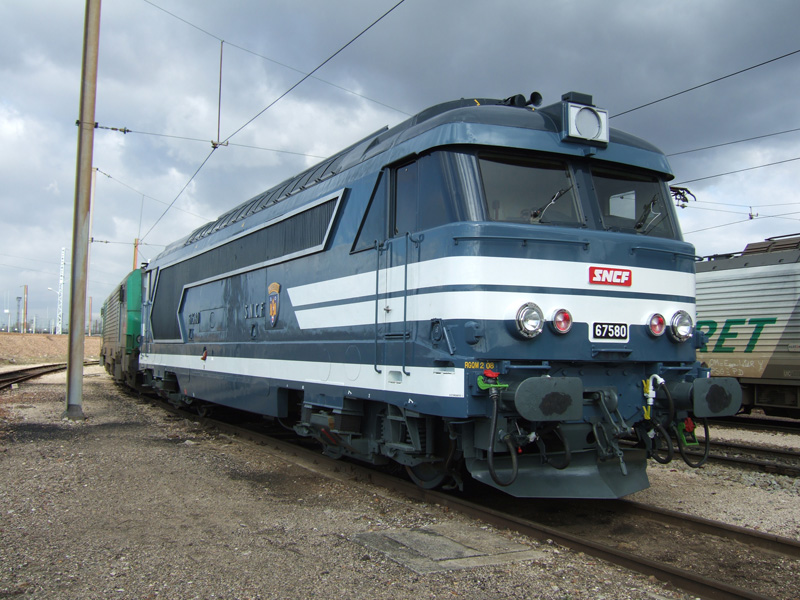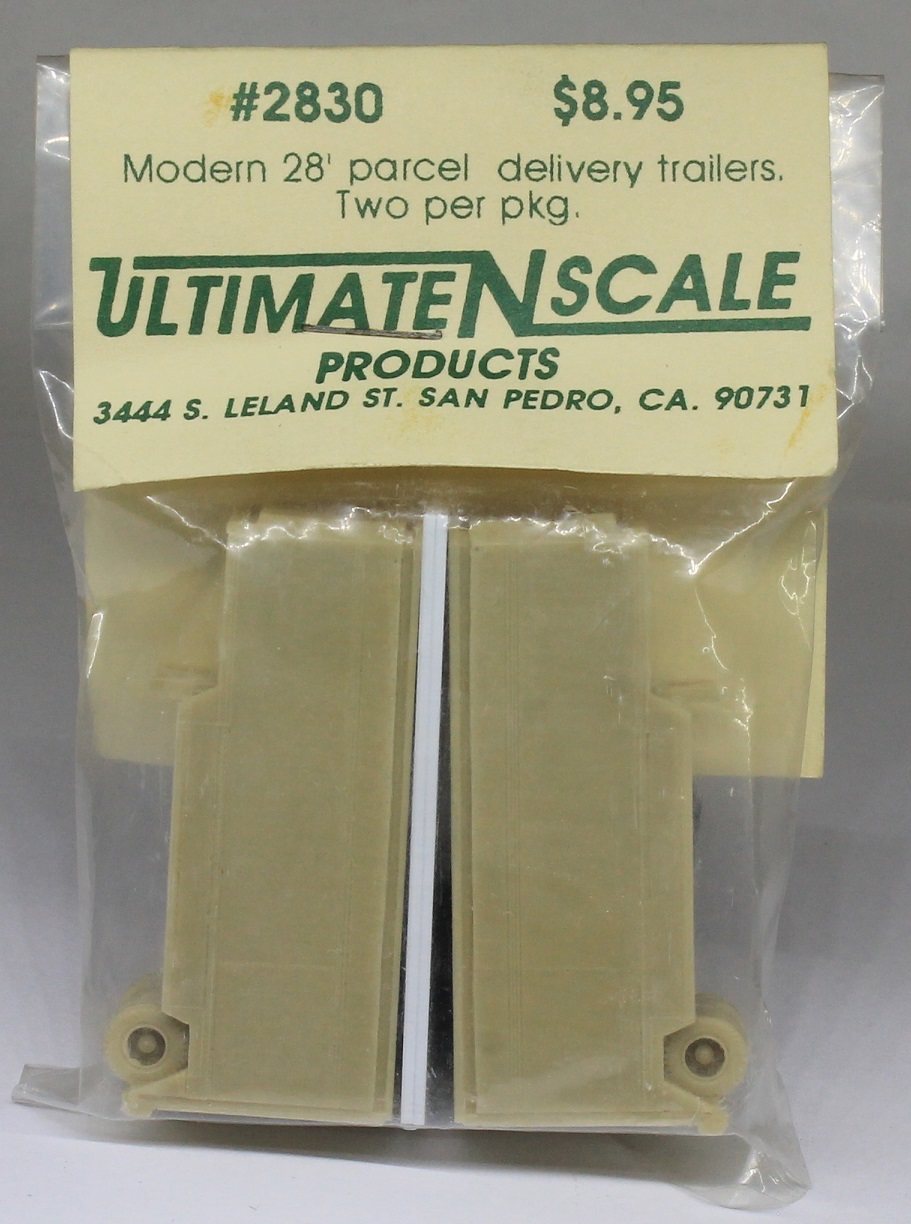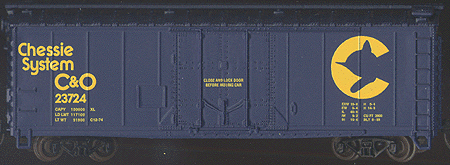Specific Item Information: Austrian Federal Railways (ÖBB) city shuttle. Class 1116 electric locomotive with a B-B wheel arrangement, built starting in 1999. Nicknamed "Taurus". 4 bi-level passenger cars, 2nd class, and 1 bi-level cab control car, 2nd class. The train looks as it currently does for the "Wiesel" for the regional service concept.
Road Name History:  The Austrian Federal Railways (German: Österreichische Bundesbahnen or ÖBB, formerly the Bundesbahn Österreich or BBÖ) is the national railway system of Austria, and the administrator of Liechtenstein's railways. The ÖBB group is owned entirely by the Republic of Austria and is divided into several separate businesses that manage the infrastructure and operate passenger and freight services.
The Austrian Federal Railways (German: Österreichische Bundesbahnen or ÖBB, formerly the Bundesbahn Österreich or BBÖ) is the national railway system of Austria, and the administrator of Liechtenstein's railways. The ÖBB group is owned entirely by the Republic of Austria and is divided into several separate businesses that manage the infrastructure and operate passenger and freight services.
The Austrian Federal Railways has had two discrete periods of existence. It was first formed in 1923, using the Bundesbahn Österreich name, as a successor to the Imperial Royal Austrian State Railways (kkStB), but was incorporated into the Deutsche Reichsbahn during the 1938-1945 Anschluss. It was reformed in 1947, using the slightly different Österreichische Bundesbahnen name, and remains in existence in this form.
Major changes currently being made to the Austrian railway network are the construction of the Wien Hauptbahnhof (Vienna main station), the Koralm Railway, the Semmering Base Tunnel and the Brenner Base Tunnel connection with Italy.
From Wikipedia

The Austrian Federal Railways has had two discrete periods of existence. It was first formed in 1923, using the Bundesbahn Österreich name, as a successor to the Imperial Royal Austrian State Railways (kkStB), but was incorporated into the Deutsche Reichsbahn during the 1938-1945 Anschluss. It was reformed in 1947, using the slightly different Österreichische Bundesbahnen name, and remains in existence in this form.
Major changes currently being made to the Austrian railway network are the construction of the Wien Hauptbahnhof (Vienna main station), the Koralm Railway, the Semmering Base Tunnel and the Brenner Base Tunnel connection with Italy.
From Wikipedia
Brand/Importer Information: Trix is a German company that originally made Trix metal construction sets. one of its co-founders was Stephan Bing, the son of the pioneer toy-maker industrialist Ignaz Bing. In 1935 the company began producing the electrically powered model trains that it became famous for, under the Trix Express label. Prior to the outbreak of World War II the Trix company produced a small range of fairly unrealistic AC powered three rail models running at 14 volts.
N gauge models under the Minitrix brand were made from the late 1960s mostly of European prototypes (German and British primarily). North American prototypes were also manufactured and marketed under the Aurora "Postage Stamp" brand; later these items were sold under the American Tortoise, Model Power and Con-Cor brands. Trix sometimes utilized North American consultants to aid in the design of this portion of the product line. The "Hornby Minitrix' brand was used in the 1980s for a short lived range of British outline models using the earlier product tooling.
Trix's owner in the 1980s and 1990s was Mangold, which went bankrupt in the late 1990s and Märklin purchased the assets in January 1997. In part, this purchase was a reflection of Märklin's need for added production capacity; Trix had been manufacturing certain items for Märklin in previous years. The purchase was also in response to the earlier purchase of the Karl Arnold company by the Italian company Rivarossi; Märklin were very keen to take over Trix market share in 2-rail H0 and especially Minitrix, until then Märklin had not marketed N gauge models. In 2003, Märklin introduced its first N gauge models under the well established Minitrix brand. A number Märklin H0 scale three-rail AC locomotives have also been introduced in two-rail DC versions under the Trix logo and many models are shared between the two brands.
From Wikipedia
N gauge models under the Minitrix brand were made from the late 1960s mostly of European prototypes (German and British primarily). North American prototypes were also manufactured and marketed under the Aurora "Postage Stamp" brand; later these items were sold under the American Tortoise, Model Power and Con-Cor brands. Trix sometimes utilized North American consultants to aid in the design of this portion of the product line. The "Hornby Minitrix' brand was used in the 1980s for a short lived range of British outline models using the earlier product tooling.
Trix's owner in the 1980s and 1990s was Mangold, which went bankrupt in the late 1990s and Märklin purchased the assets in January 1997. In part, this purchase was a reflection of Märklin's need for added production capacity; Trix had been manufacturing certain items for Märklin in previous years. The purchase was also in response to the earlier purchase of the Karl Arnold company by the Italian company Rivarossi; Märklin were very keen to take over Trix market share in 2-rail H0 and especially Minitrix, until then Märklin had not marketed N gauge models. In 2003, Märklin introduced its first N gauge models under the well established Minitrix brand. A number Märklin H0 scale three-rail AC locomotives have also been introduced in two-rail DC versions under the Trix logo and many models are shared between the two brands.
From Wikipedia
Item created by: CNW400 on 2022-06-01 13:57:55. Last edited by CNW400 on 2022-06-02 11:19:26
If you see errors or missing data in this entry, please feel free to log in and edit it. Anyone with a Gmail account can log in instantly.
If you see errors or missing data in this entry, please feel free to log in and edit it. Anyone with a Gmail account can log in instantly.


